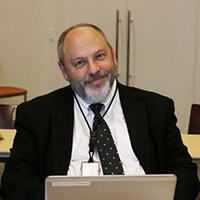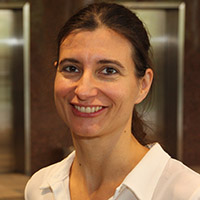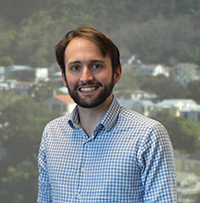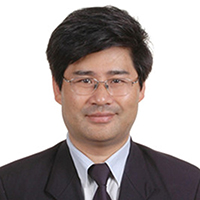The AOAC Analytical Solutions Forum (ASF) serves as an “idea incubator”. It is a science-based, open meeting where global stakeholders from government, industry, and academia convene to share emerging issues impacting food safety, food defense, and food security, and to examine the role (and need) for analytical standards and methods.
The theme for the ASF at the 2021 AOAC Annual Meeting is “Analytical Standards and Tools to Advance International Capacity Building for Food Safety”. To meet challenges faced with an increasingly globalized food supply, collaborative global capacity building programs have emerged over the past decade through government-to-government initiatives, public-private partnerships, and non-profit organizations to develop effective food safety practices. They are designed to ensure public health, protect the consumer, reduce trade barriers, strengthen economies and businesses; and develop a regulatory framework that can be recognized and adopted throughout the international community.
Analytical standards, official methods of analysis, and laboratory testing practices are all underpinnings for achieving many of the goals established by these programs and are well aligned with AOAC INTERNATIONAL’s mission and stakeholder interests.
The first two ASF plenary presentations will provide an overview of activities in support of laboratory capacity building at the U.S. Department of Agriculture (USDA) and the ISO Technical Committee on Food Products (ISO/TC 34). This will be followed by two regional presentations from representatives from New Zealand and China to highlight emerging food safety concerns and programs being developed to meet these new challenges.
As in the past, the ASF will feature an Emerging Topics and Technologies Session as well. This session introduces timely topics of high importance and that have great potential to impact global public health, food safety, and trade. It is also an opportunity to explore new technologies and applications on the horizon that can be adapted to food safety testing. Finally, it allows for substantial international engagement, fostering future AOAC collaborations. This year’s topics will include biotechnology, laboratory safety and security, and the Internet of Things (IoT) – how novel technologies are rapidly being incorporated into real-time diagnostics during food processing.
| Topic | Speaker(s) |
|---|---|
| Welcome and Opening Remarks | David Schmidt, AOAC Executive Director |
| Introduction to Capacity Building and AOAC | Palmer Orlandi, AOAC Chief Science Officer and Deputy Executive Director |
| Plenary Presentation: “Analytical Standards and Tools to Advance International Capacity Building for Food Safety” | Michael Sussman, USDA/AMS; Sandrine Espeillac, ISO TC34 |
| Regional Presentations: China, New Zealand/Australia | Liang Cheng-Zhu, China; Andrew Pearson, New Zealand |
| Topic | Speaker(s) |
|---|---|
| AOAC INTERNATIONAL Core Program Updates | Scott Coates, Senior Director of the AOAC Research Institute Arlene Fox, Senior Director of AOAC Proficiency Testing Deborah McKenzie, Senior Director of AOAC Standards |
| An Open Discussion with the ASF Steering Committee | Melissa Phillips, US NIST (Chair) Morgan Wallace, Rheonix (Vice Chair) Erik Konings, Nestle Cheryl Lassitter, US NOAA Brooke Roman, Neogen Aniko Solyom, GAAS Analytical Brad Stawick, Stawick Lab Management |
| Topic | Speaker(s) |
|---|---|
| Biotechnology | Sheng Lin-Gibson, US TAG Lead (NIST) |
| Safety and Security | Erin Crowley, Q Laboratories, Inc. |
| Remote Sensing and Handheld Detectors | Guillermo Rodriguez Albalat, Biotica |

Dr. Michael Sussman received his baccalaureate from Tulane University, master of science in molecular microbiology from the University of Illinois at Chicago and PhD in molecular biology and biochemistry in biomedical science from the University of Connecticut. He trained in two molecular virology post-doctoral fellowships at Plum Island Animal Disease Center and Michigan State University. Until 2003, Dr. Sussman was employed as a research scientist in animal vaccine development. From 2003 to 2009, Michael led the US Department of Agriculture (USDA)’s biotechnology testing program. From 2009 to 2013 he served as the Director of the USDA, Agricultural Marketing Service Laboratory Division.
Since 2013, Dr. Sussman has served as a senior research scientist for the US Department of Agriculture, Agricultural Marketing Service’s Agricultural Analytics Division in Washington, DC. Dr. Sussman was the Chairperson for ISO TC 34/SC 16 from 2008 until 2018. He became the current committee manager of ISO/Technical Committee 34 “Food Products”/SC 16 “Horizontal Methods for Molecular Biomarker Analysis” in 2017 and serves as an expert in a number of ISO committees.

Sandrine Espeillac is a food engineer. She is currently the head of the food department in Afnor, the French organization for standardization. She also has international responsibilities in ISO, the International Organization for Standardization as she is the secretary of the ISO committee on Food Products (ISO/TC 34). She represents ISO in Codex Alimentarius.

Dr. Andrew Pearson is the Manager of the Food Risk Assessment function of New Zealand Food Safety, a business unit of the Ministry for Primary Industries. Andrew’s area of expertise is in environmental chemistry and chemical risk assessment of foods. Andrew has worked in chemical risk assessment for MPI since 2006 then into the role of managing the delivery of risk assessment on all food safety hazards in 2019. Andrew maintains active collaborations with New Zealand universities, including involvement on PhD projects at the University of Canterbury and Waikato University; as well as being on national advisory groups relating to use of biosolids and emerging contaminants. Additional to a focus on contaminants Andrew has led projects on element and isotopic fingerprinting for food provenance and authenticity, and the human health assessment of genetically modified foods.

Dr. Chengzhu Liang has received several honorary titles, such as the State Council Government Special Allowance. Entrusted by the China National Center for Food Safety Risk Assessment, Dr. Liang has been responsible for the follow-up evaluation of national food safety standards. His team has completed the follow-up evaluation of 256 national food safety standards and the comparative study of 20 national standards with AOAC/ISO international standards. He has submitted more than 30 proposals for the formulation and revision of national standards. He has organized annual AOAC China Section conferences since 2011 and helped strengthen the communication between AOAC international standards and Chinese national standards. He has made positive contributions to the internationalization of Chinese standards and the introduction of AOAC and other international standards into China.
He is a member of the Standing Committees on Analytical Methods for Composition and Harmonization of Microbiological Methods of ISO/IDF, the National Animal Health Standardization Committee, the National Food Safety Standards (GB) Review Committee, and the National Certification and Accreditation Administration (CNCA) Animal Quarantine Standards Committee. He is a graduate student tutor at Ocean University of China.
Dr. Liang has won more than 30 provincial and ministerial-level scientific and technological achievements awards. He has drafted three international standards, 10 national standards and 30 industry standards. He has 15 authorized national invention patents. He has published more than 30 research papers in SCI and core journals and has edited and published 10 professional books.